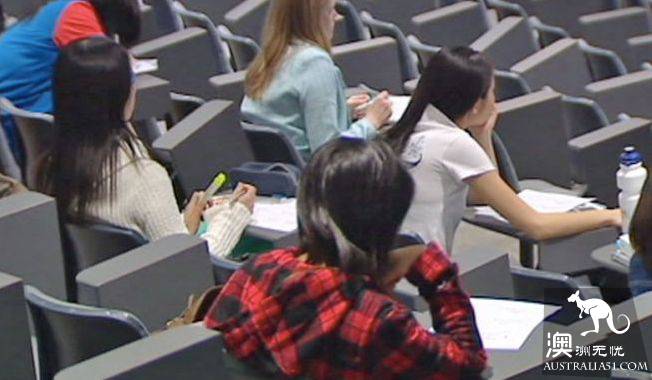According to the Australian Financial Review, the increase in the number of Australian Chinese students provides a rare opportunity for China and Australia to establish regional strategic ties. But some Australian politicians and business leaders do not seem to understand what Chinese students will bring to the Australian economy.

Sociologists criticise that Chinese students should not be seen as "cash cows", one of Australia`s main sources of income, or worried that Chinese students will have a negative impact on local campus life or Australian politics. Instead, we should look for opportunities to engage with emerging Chinese entrepreneurs.
Many people come to Australia with successful experiences or family business backgrounds, with their own start-up or business operations in China, typically valued at millions of Australian dollars.
This is also a new career trend for millennials in China, who, unlike the previous generation, do not aspire to national institutions and have little interest in "iron rice bowls".
About 50 percent of Chinese citizens born after 1990 want to start their own businesses; 19 percent of them have already started their own businesses, according to Penguin Intelligence, a research firm owned by Internet giant Tencent. This is the highest proportion of people between the ages of 25 and 30, with as many as 40% starting their own companies.
Despite rising trade tensions between China and the United States, Australia has the opportunity to leverage its soft power by reaching out to Chinese students. Meng Yao (alias), a MBA student at the University of Sydney, is an example. While at university, she will continue to run 22 employees around the world, an educational institution she founded three years ago. She chose to continue her study in order to improve her English and to enrich her professional knowledge so that her company could become international.
Eric Knight, vice president of the University of Sydney, said that Meng Yao was not a case, and could see a rapid increase in the number of Chinese students enrolled in campus entrepreneurship courses, and that the University of Sydney`s "accelerated incubator for entrepreneurship" courses had become very popular.
In addition, Chinese executives are looking for business opportunities in Australia, many of which see Australia as a test market for new products and services, particularly in Sydney and Melbourne, where there are a large number of overseas Chinese. This means that companies such as Alibaba and Tencent typically test or launch a product in Australia directly or through subsidiaries in order to test their commercial viability before being marketed globally.
Eric Knight, vice-chancellor of the University of Sydney, believes Australian universities need to invest further in world-class entrepreneurship programmes to enable Australia to attract and retain the best business talent, whether Chinese or other.
"if Australia fails to attract and retain Chinese students because of concerns about the possible negative impact, it will miss the opportunity to control the Asian market," he said.
International students are the key channel at present, but the market is changing. According to the Economist, 80% of Chinese students choose to return to Australia rather than stay in Australia after completion of their studies. Compared with 2006, the figure was less than 1/3.
Eric Knight believes that while China`s technology wave is unrivaled by Australia, Australia can actually do more. For example, let Chinese students feel welcome in Australia, support their work and help them better integrate into society through public welfare agencies. This is not a zero-sum game.
Chinese people like to refer to foreign students as "seagulls," meaning those who fly between the East and the West, have a nest in both places, create opportunities at the intersection of the East and the West.
Eric Knight, vice president of the University of Sydney, confesses that he is also a Chinese Australian. He believes the Australian government and universities must work together to make Australia an attractive nest-building habitat, rather than keep Chinese students out of the door.

